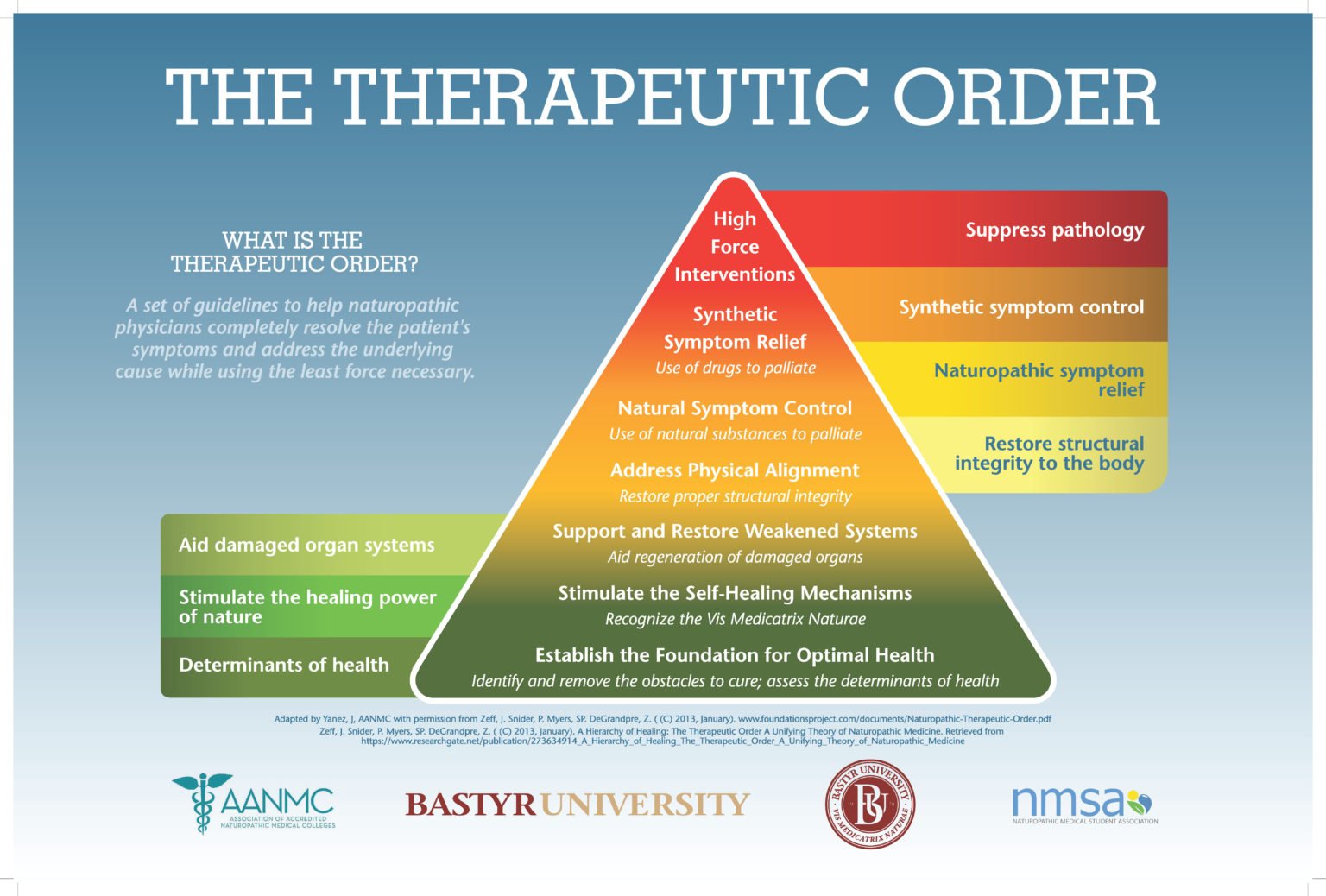
What is Naturopathic Medicine?
-
Naturopathic medicine is a distinct practice of medicine that emphasizes prevention and the self-healing process to treat each person holistically and improve outcomes while lowering health care costs. Naturopathic doctors are educated and trained in accredited naturopathic medical colleges. They diagnose, prevent and treat acute and chronic illness, restore and establish optimal health by supporting the person’s inherent self-healing process. Rather than just suppressing symptoms, naturopathic doctors work to identify underlying causes of illness, and develop personalized treatment plans to address them.
-
The following principles are the foundation of naturopathic medical practice:
The Healing Power of Nature (Vis Medicatrix Naturae): Naturopathic medicine recognizes an inherent self-healing process in people that is ordered and intelligent. Naturopathic physicians act to identify and remove obstacles to healing and recovery, and to facilitate and augment this inherent self-healing process.
Identify and Treat the Causes (Tolle Causam): The naturopathic physician seeks to identify and remove the underlying causes of illness rather than to merely eliminate or suppress symptoms.
First Do No Harm (Primum Non Nocere): Naturopathic physicians follow three guidelines to avoid harming the patient: 1. ) Utilize methods and medicinal substances which minimize the risk of harmful side effects, using the least force necessary to diagnose and treat; 2.) Avoid when possible the harmful suppression of symptoms; and 3.) Acknowledge, respect, and work with individuals’ self-healing process.
Doctor as Teacher (Docere): Naturopathic physicians educate their patients and encourage self-responsibility for health. They also recognize and employ the therapeutic potential of the doctor-patient relationship.
Treat the Whole Person: Naturopathic physicians treat each patient by taking into account individual physical, mental, emotional, genetic, environmental, social, and other factors. Since total health also includes spiritual health, naturopathic physicians encourage individuals to pursue their personal spiritual development.
Prevention: Naturopathic physicians emphasize the prevention of disease by assessing risk factors, heredity and susceptibility to disease, and by making appropriate interventions in partnership with their patients to prevent illness.
-
Description teThe general educational structure for naturopathic doctors is comparable to that of conventional medical doctors (MDs) and osteopathic doctors (DOs).
Accredited naturopathic medical schools are four-year, in-residence, hands-on medical programs consisting of a minimum of 4,100 hours of class and clinical training. During naturopathic medical school, students are educated in the biomedical sciences as well as the latest advances in science in combination with natural approaches to therapy. They also study disease prevention and clinical techniques. In addition to a standard medical curriculum, schools require their graduates to complete four years of training in disciplines such as clinical nutrition, acupuncture, homeopathic medicine, botanical medicine, physical medicine, and counseling. For at least the final two years of their medical program, naturopathic medical students intern in clinical settings under the close supervision of licensed professionals. Given the importance of hands-on, clinical experience for naturopathic medical students, the accrediting body for naturopathic medical colleges does not recognize degrees from online programs of study.xt goes here
-
There are a number of situations where naturopathic and conventionally trained doctors working together deliver care for some patients. Examples include:
– People with one or more chronic diseases or lifestyle-related conditions such as heart disease, diabetes, or hypertension, which require a high level of patient engagement in their own health as well as time to realize the full benefits of recommended treatments
– People with cancer or other diseases where commonly used medical treatments can cause significant side effects that can undermine health
– People seeking relief from chronic pain without using highly additive opioids
– People who want to build and maintain a foundation of optimal health and well-being
– People with symptoms such as fatigue, insomnia, and gastrointestinal distress who have exhausted options with conventionally trained medical doctors and still do not have an actionable diagnosis or are not improving with current treatments
These are areas where naturopathic medicine excels, providing diagnostic approaches and treatments that complement those of conventionally trained doctors. Naturopathic doctors are educated and trained in accredited naturopathic medical colleges to diagnose, prevent and treat acute and chronic illness and restore and establish optimal health by supporting a person’s inherent self-healing process. In addition, they are trained to identify underlying causes of illness and develop personalized treatment plans to address them. They also are known for their unique Therapeutic Order, which identifies the natural order in which naturopathic therapies should be applied to provide the greatest benefit with the least potential for adverse reactions.
In collaborations with conventionally trained doctors, the Therapeutic Order can help guide decision-making for the care team. Diagnostic tools commonly used by conventionally trained doctors include detailed health, disease, and prescription drug histories, physical exams, and targeted laboratory testing and imaging. Naturopathic doctors also consider detailed diet records, lifestyle habits and choices, exercise history, and social/emotional factors to assess patients’ needs. These approaches can open doors to new treatment pathways and options. For example, significant research shows that lifestyle-change programs that focus on nutritional interventions, resiliency, exercise, and emotional well-being can sometimes reverse the progression of chronic diseases such as heart disease, diabetes, hypertension, obesity, and high cholesterol. Naturopathic medical treatment plans include these and other therapies such as botanical medicines and clinical nutrition, acupuncture, hydrotherapy, and counseling, just to name a few. In collaborations of naturopathic and conventionally trained doctors,
sometimes one practitioner takes the lead and sometimes the other. An example of a situation in which a conventionally trained doctor would provide primary treatment and a naturopathic doctor would provide adjunctive treatment is cancer care. For cancer patients, surgeons, medical oncologists, and radiation oncologists provide surgery, chemotherapy, and radiation as primary treatments while a naturopathic doctor supports a patients’ vitality and natural ability to heal, which helps them tolerate the often difficult or toxic side effects of cancer treatments. While patients can benefit from these collaborations, naturopathic and conventionally trained doctors who work together report that each practitioner learns from the other—opening up new possibilities for both and improving patient outcomes.
-
Naturopathic medicine emphasizes prevention and the self-healing process to treat each person holistically and improve health outcomes. As a health care consumer evaluating whether naturopathic medicine is safe, you should be aware of the following facts:
1.) Numerous research studies of naturopathic treatments for common conditions such as heart disease, diabetes, chronic low back pain, and anxiety have shown that naturopathic medicine is both safe and effective. Significant research shows that lifestyle-change programs that focus on nutritional interventions, exercise, and emotional well-being can sometimes reverse the progression of chronic disease safely and effectively. Naturopathic medical treatment plans focus on these and other therapies, such as botanical medicine, clinical nutrition, hydrotherapy, and counseling to name just a few.
2.) Licensed naturopathic doctors complete a rigorous, four-year, in residence, science-based, post-graduate medical education consisting of 4,100 hours of coursework and clinical training at an accredited naturopathic medical school. During naturopathic medical school, students are educated in the biomedical sciences as well as the latest advances in science in combination with natural approaches to therapy. They also study disease prevention. Accredited schools require graduates to complete four years of training and cover disciplines including: a standard medical curriculum, clinical nutrition, acupuncture, homeopathic medicine, botanical medicine, physical medicine, and counseling. For at least the last two years of their medical program, naturopathic medical students intern in clinical settings under the close supervision of licensed doctors. To be licensed, naturopathic medical students must pass two sets of board exams. Educating competent, well-trained clinicians is how naturopathic medicine maintains its excellent safety record.
3.) Medical malpractice insurance rates for naturopathic doctors are among the lowest of any medical services provider. The average annual medical malpractice insurance rate for naturopathic doctors was $3,802 annually as of January 2017, according to NNMIC, the largest malpractice insurer for naturopathic doctors. By comparison, the average annual rate for conventionally trained MDs was $18,646. A number of factors go into determining malpractice rates for a medical professional. Most important are whether there is the potential for a severe claim based on the nature of typical injuries or damage, and whether prior claims have been filed against a doctor. Malpractice rates for naturopathic doctors are almost five times lower than those for conventionally trained medical doctors because insuring an MD is riskier for an insurance company than insuring a naturopathic doctor.
4.) Few medical treatments are 100% safe, but some are safer than others. Few medical therapies are safe for everyone, in every situation in which they are used. For example, there are 2.7 million serious adverse reactions to legally prescribed prescription drugs each year, resulting in 128,000 deaths. Having said that, naturopathic medicine is known for its unique Therapeutic Order, a set of guidelines naturopathic doctors use in clinical decision making to provide the greatest benefit to the patient with the least potential for damage. The Therapeutic Order begins by offering minimally invasive therapies aimed at supporting the body and ends in more invasive procedures such as chemical therapies and surgery. Naturopathic doctors will help patients achieve optimal health by first removing obstacles such as poor diet and lifestyle behaviors; stimulating self-healing mechanisms, strengthening weakened systems, and correcting structural integrity with minimally invasive therapies; and using natural substances to restore health.
The Process of Healing
A diagram illustrating how the normal health is restored and how chronic disease can develop.
The Naturopathic Oath
- I dedicate myself to the service of humanity as a practitioner of the art and science of naturopathic medicine.
- By precept, education and example, I will assist and encourage others to strengthen their health, reduce risks for disease, and preserve the health of our planet for ourselves and future generations.
- I will continually endeavour to improve my abilities.
- I will conduct my life and practice of naturopathic medicine with integrity and freedom from prejudice.
- I will keep confident what should not be divulged.
- I will honor the principles of naturopathic medicine:
- First, to do no harm.
- To co-operate with the healing powers of nature.
- To address the fundamental causes of disease.
- To heal the whole person through individualized treatment.
- To teach the principles of healthy living and preventative medicine.
- With my whole heart, before these witnesses, as a Doctor of Naturopathic Medicine, I pledge to remain true to this oath.


